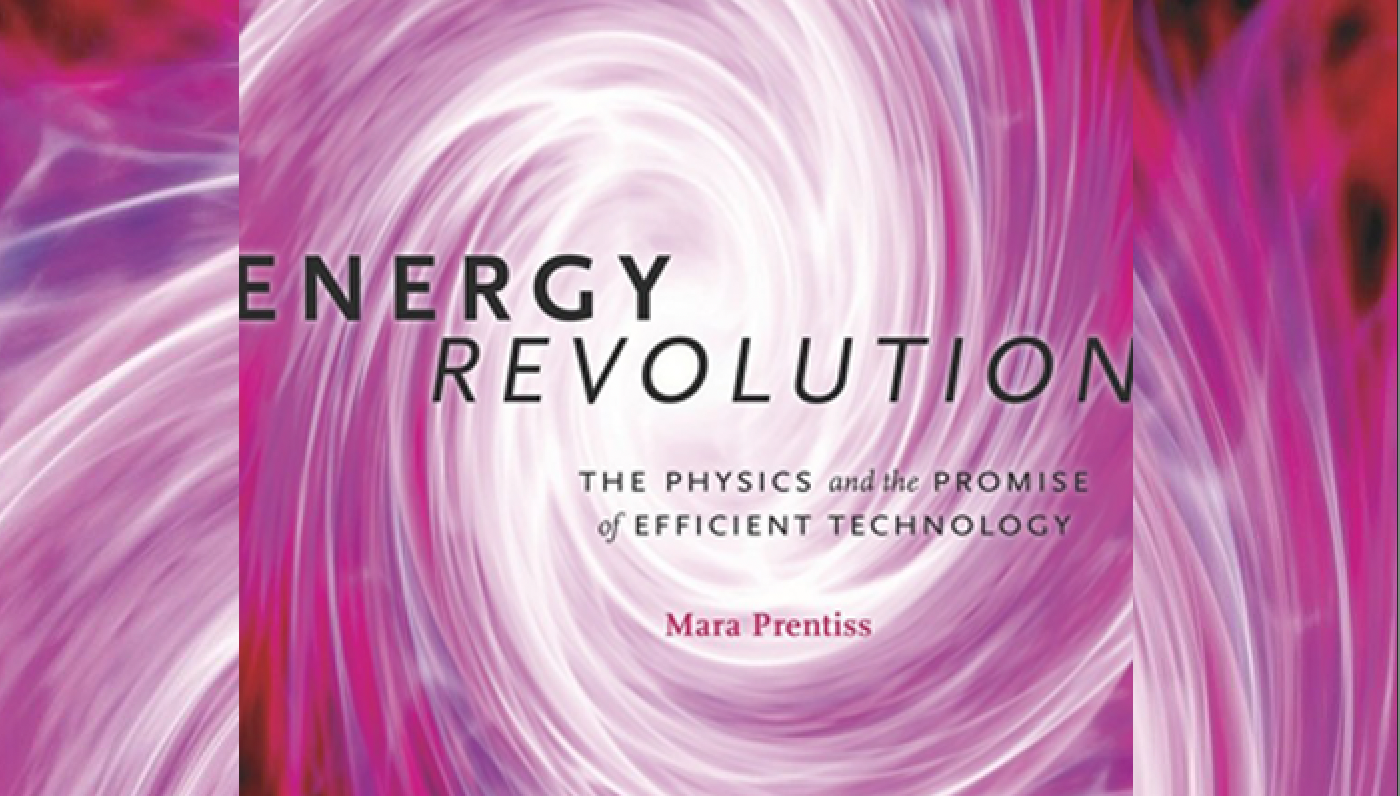School of Law Author Series 2020/21. Seminar 16 with Professor Mara Prentiss.
School of Law Author Series 2020/21 - Conversations with Donna Lyons. Seminar 16 with Professor Mara Prentiss.
Mara Prentiss, Mallinckrodt Professor of Physics and Director of Graduate Studies at the Department of Physics, Harvard University, will speak about her book, ‘Energy Revolution: The Physics and the Promise of Efficient Technology’, at Trinity College Dublin on 16 December.
At this event, we honour the memory of Trinity College Dublin School of Law alumna, Sharon Waters.
Date and time: 6pm (Dublin) / 1pm (Boston), Wednesday, 16 December 2020
Attendees can join the webinar directly via Zoom and the event will be simultaneously live-streamed on the Law School Facebook Page. This event is free and open to all and there will be an opportunity for Q&A. The webinar can accommodate 100 attendees and participants will be admitted on a first come, first served basis. If the webinar fills to capacity, it will be possible to watch the Facebook Live Stream, and a recording will also be made available following the event. We look forward to seeing you there!
Mara Prentiss is Mallinckrodt Professor of Physics and Director of Graduate Studies at the Department of Physics, Harvard University. The Prentiss group focuses on using physics tools to elucidate important problems in biology. The basic principles governing self-assembly have been a focus of recent work. It has long been known that any complex self-assembling system faces a trade-off between the speed at which the system explores different configurations and the stability of the final product. The Prentiss group has shown that this paradox can be overcome in various systems, but their research has focused on two systems that play important roles in the interactions between chromosomes in vivo.
The Prentiss group discovered that homology dependent interactions between two double stranded DNA can produce stable structures, and recent theoretical work has suggested that essential features of this system can be captured by a simple interaction between two rigid rods that are free to rotate in two or three dimensions. Most of the work in the Prentiss group has centred on RecA family proteins. These proteins play a vital role in DNA recombination and repair. A combination of single molecule and bulk experiments and theoretical modelling have allowed us to provide a detailed structure/function description of the homology recognition, a process that had remained largely mysterious despite thirty years of intensive research. General features of these systems have suggested improvements for gene chip technologies, and may offer new insights into protein folding and new strategies for artificial self-assembly.
About ‘Energy Revolution: The Physics and the Promise of Efficient Technology’:
Energy can be neither created nor destroyed but it can be wasted. The United States wastes two-thirds of its energy, including 80 percent of the energy used in transportation. So the nation has a tremendous opportunity to develop a sensible energy policy based on benefits and costs. But to do that we need facts, not hyperbole, not wishful thinking. Mara Prentiss presents and interprets political and technical information from government reports and press releases, as well as fundamental scientific laws, to advance a bold claim: wind and solar power could generate 100 percent of the United States average total energy demand for the foreseeable future, even without waste reduction. To meet the actual rather than the average demand, significant technological and political hurdles must be overcome. Still, a U.S. energy economy based entirely on wind, solar, hydroelectricity, and biofuels is within reach. The transition to renewables will benefit from new technologies that decrease energy consumption without lifestyle sacrifices, including energy optimisation from interconnected smart devices and waste reduction from use of LED lights, regenerative brakes, and electric cars. Many countries cannot obtain sufficient renewable energy within their borders, Prentiss notes, but U.S. conversion to a 100 percent renewable energy economy would, by itself, significantly reduce the global impact of fossil fuel consumption. Energy Revolution answers one of the century’s most crucial questions: How can we get smarter about producing and distributing, using and conserving, energy?
In Memoriam
 |
At this event, we honour the memory of Trinity College Dublin School of Law alumna, Sharon Waters.
Sharon was also a graduate of Queen’s University Belfast School of Law. Her passion for social justice and environmental protection knew no bounds. She devoted her time and talents to the betterment of society, through her work with the Irish Refugee Council, European Movement Ireland, the Green Party and the Child and Family Agency. Sharon had many friends internationally and in particular, here in Dublin. We want to take this opportunity to remember Sharon and all the good work, love, and kindness that she brought to the world. We also remember Sharon’s loving family at this difficult time. |


